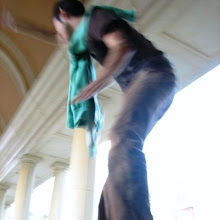This is particularly evident in the interaction between the people in his stories, often characterized by jealousy, selfishness, and distrust—among other unfavorable distinctions of the mind—which stem from a disconnect between actual intentions and perceived intentions combined with a stubborn, often prideful and sometimes ignorant, refusal of honest communication.
 The story I mentioned, called “The Hitchhiking Game”, brilliantly captures this disconnect, showing it extending beyond interpersonal relationships; I would almost go as far as calling the disconnect an epidemic—a disease of the human spirit—as false motives are iterated to the point where they become almost indistinguishable from the truth. A person’s life, love, and work become determined by external perceptions rather than their own thoughts and desires. If this doesn’t make any sense (and I can see that without perspective it might not), you should probably just go ahead and read the story.
The story I mentioned, called “The Hitchhiking Game”, brilliantly captures this disconnect, showing it extending beyond interpersonal relationships; I would almost go as far as calling the disconnect an epidemic—a disease of the human spirit—as false motives are iterated to the point where they become almost indistinguishable from the truth. A person’s life, love, and work become determined by external perceptions rather than their own thoughts and desires. If this doesn’t make any sense (and I can see that without perspective it might not), you should probably just go ahead and read the story.But first, to give you a reference point, “The Hitchhiking Game” is about a working man and his younger girlfriend of a year as they take a vacation, their first significant time spent together free of work. When they initiate a game where the girl pretends to be hitchhiker and he the stranger who picks her up, their insecurities about each other, their relationship, and their own lives are given an indirect outlet, and subsequently the two begin to realize that they really are strangers to each other and in their lives. What follows is a passage from the story that I found particularly resonant—hopefully it will provide you with a picture of some of the aforementioned ideas:
There was nothing the young man missed in his life more than lightheartedness. The main road of his life was drawn with implacable precision: his job didn’t use up merely eight hours a day, it also infiltrated the remaining time with the compulsory boredom of meetings and home study, and, by means of the attentiveness of his countless male and female colleagues, it infiltrated the wretchedly little time he had left for his private life as well; this private life never remained secret and sometimes even became the subject of gossip and public discussion. Even a two week vacation didn’t give him a feeling of liberation and adventure; the gray shadow of precise planning lay even here. The scarcity of summer accommodations in our country had compelled him to book a room in the Tatras six months in advance, and since for that he needed a recommendation from his office, its omnipresent brain thus did not cease knowing about him for even an instant.
He had become reconciled to all this, yet all the same from time to time the terrible thought of the straight road would overcome him—a road along which he was being pursued, where he was visible to everyone, and from which he could not turn aside. At this moment that thought returned to him. Through an odd and brief conjunction of ideas the figurative road became identified with the real highway along which he was driving—and this led him suddenly to do a crazy thing.
“Where did you say you wanted to go?” he asked the girl.
“To Bystrica,” she replied.
“And what are you going to do there?”
“I have a date there.”
“Who with?”
“With a certain gentleman.”
The car was just coming to a large crossroads. The driver slowed down so as to read the road signs, then turned off to the right.
“What will happen if you don’t turn up for that date?”
“[It] would be your fault, and you would have to take care of me.”
“You obviously didn’t notice that I turned off in the direction of Nove Zamky.”
“Is that true? You’ve gone crazy!”
“Don’t worry! I’ll take care of you,” said the young man.
The game all at once went into a higher gear. The sports car was moving away not only from the imaginary goal of Bystrica, but also from the real goal, toward which it had been heading in the morning: the Tatras and the room that had been reserved. Fiction was suddenly making an assault on real life. The young man was moving away from himself and from the implacable straight road, from which he had never strayed until now.
“But you said you were going to the Tatras!” The girl was surprised.
“I'm going, miss, wherever I feel like going. I'm a free man, and I do what I want and what it please me to do.”
